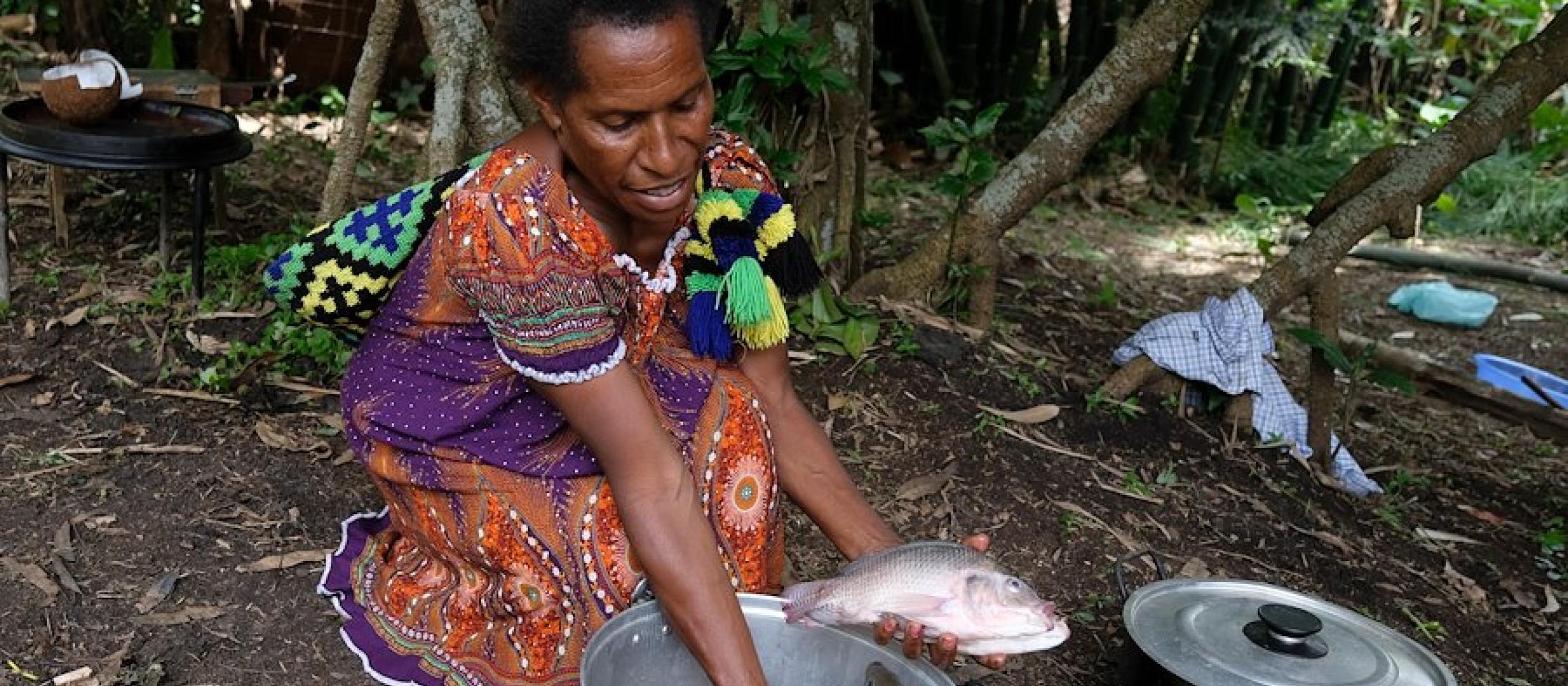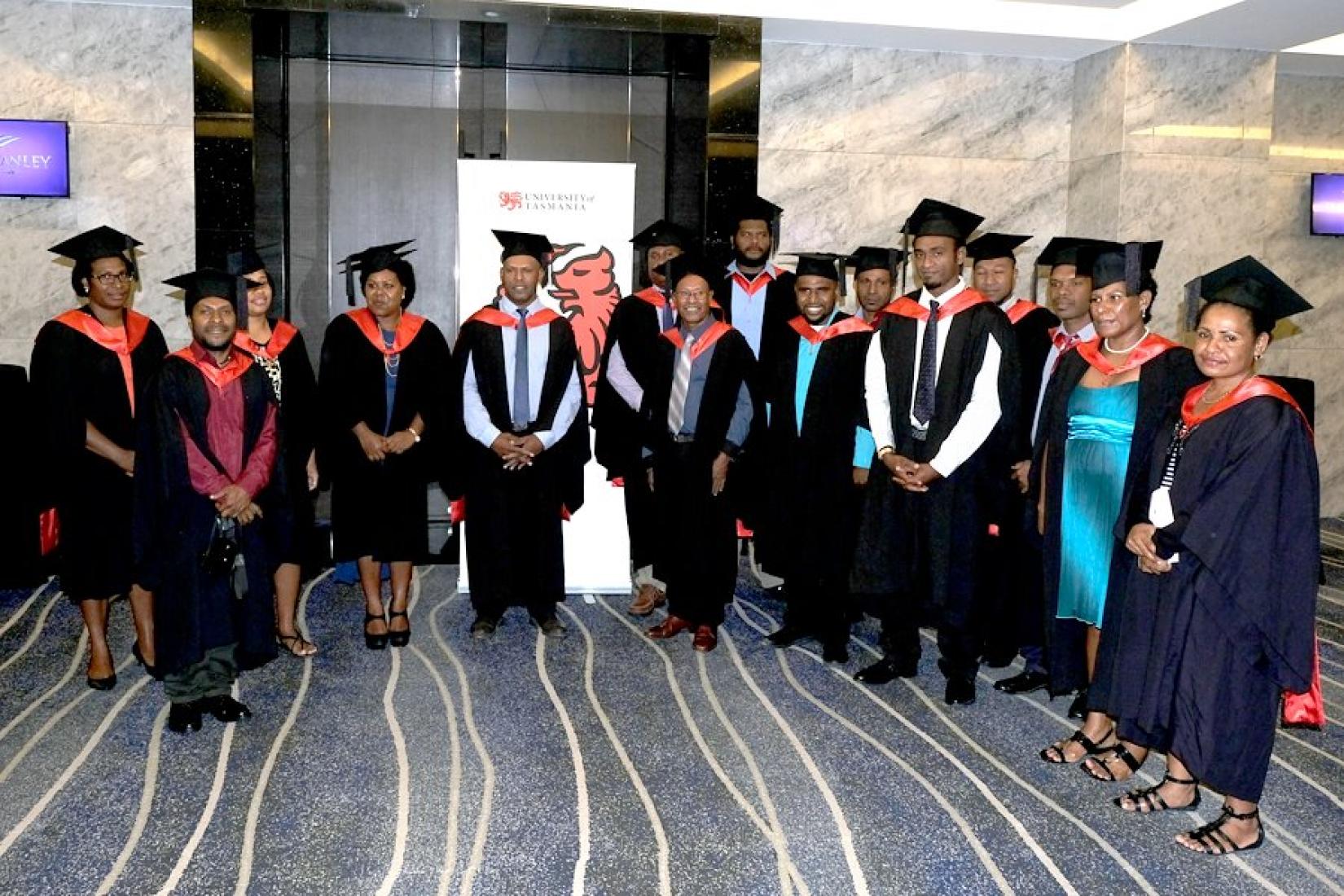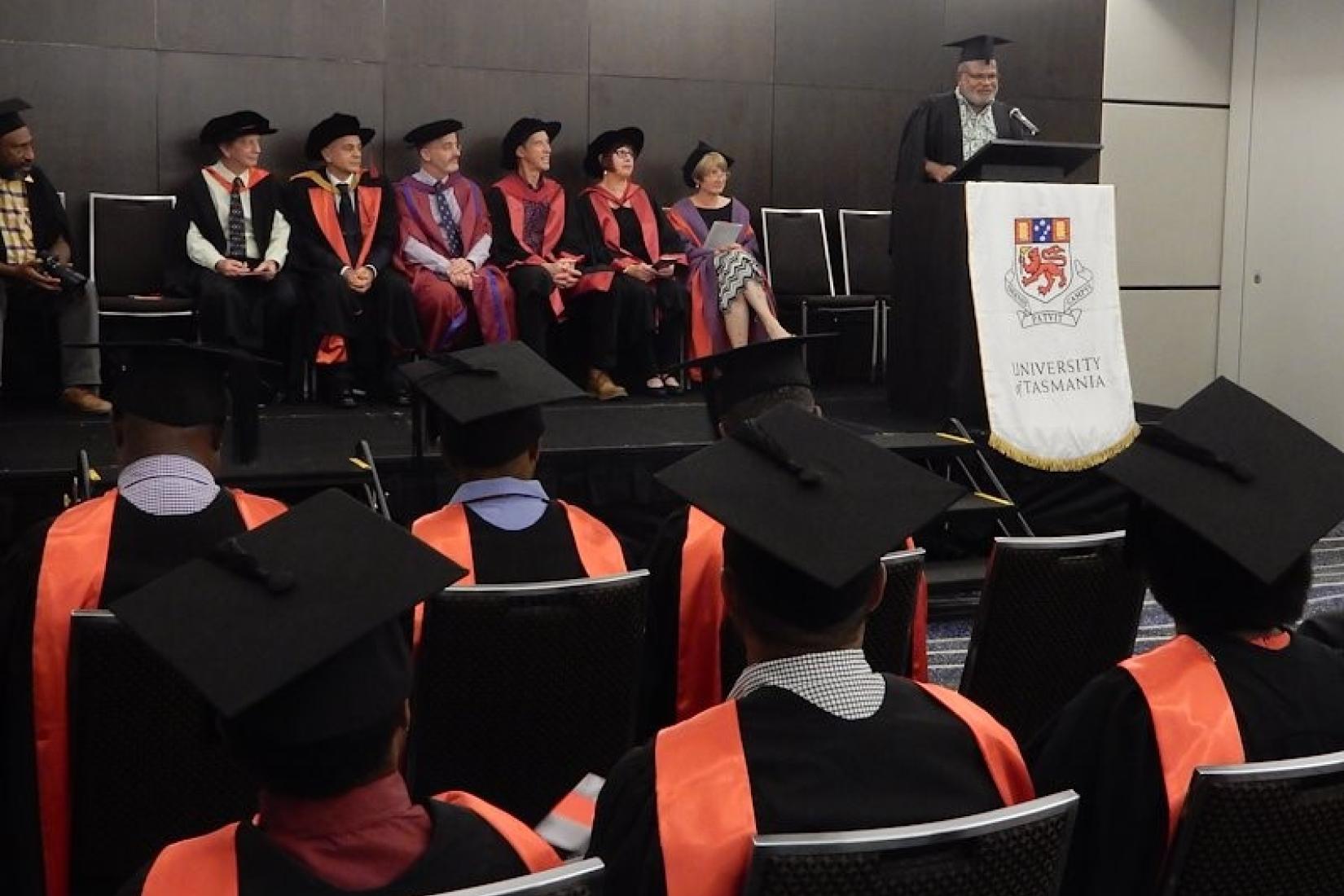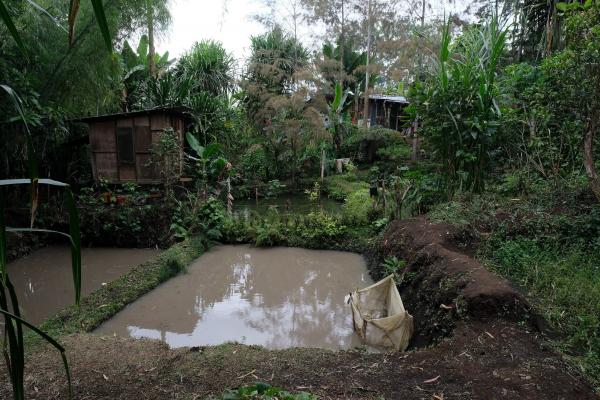AQUACULTURE IN PNG
ACIAR’s Fisheries Program in PNG includes a suite of aquaculture projects. Fish farming is growing in the country, and has great potential for food security and income generation. Some 60,000 small-scale fish farms are producing tilapia, carp and trout for home consumption and sale, but production levels are low compared, for example, with South-East Asian countries. ACIAR projects addressing production issues are now benefiting from stronger research skills in the NFA.
Georgina Bernard is a Provincial Fisheries Officer and a recent graduate of the course. She is using her new skills to find local alternatives to expensive imported feed, which is one of the main problems for aquaculture in PNG. ‘I’m working in a province where there is a lot of oil palm, so we have an abundance of kernel, and we’re trailing different kernel-based feeds,’ she explains.
By basing the course in PNG, and ensuring it had a strong industry focus, UTAS staff were able to make sure the training had direct relevance to the students’ work. ‘[The students]were able to really relate what was being taught in the classroom with their jobs, and if they had any issue [with their work], they could bring it into the classroom,’ says Jacob Wani, Executive Manager of Aquaculture and Inland Fisheries at the NFA.
Graduates now have access to higher studies as a result of their new qualification. Philomena Sinkau, trainer in aquaculture at the National Fisheries College, hopes to register for a PhD and carry out research on developing a training policy for the aquaculture sector. ‘It’s [provided] a bridge for me,’ she says.
In the third year, the course broadened its intake to researchers in other agriculture disciplines, drawing on the ACIAR project network. The course proved highly transferable. February’s graduation marked the end of the three-year project, but the partners are hoping to build on its success and develop a second phase. This approach to capacity building could also be extended to other countries in the Pacific region, and other sectors.






